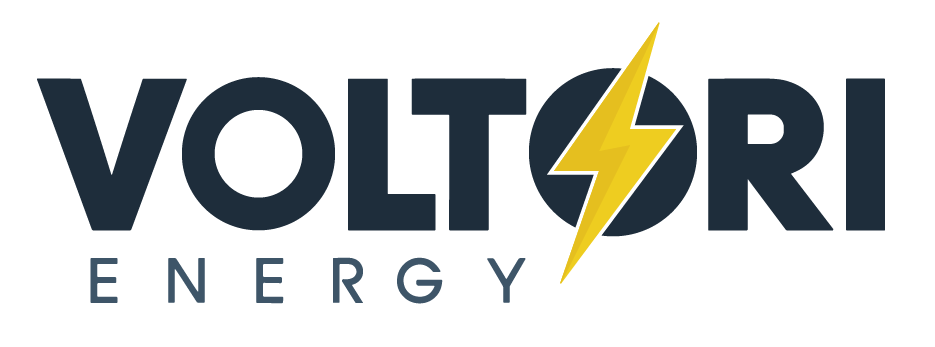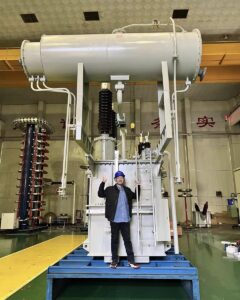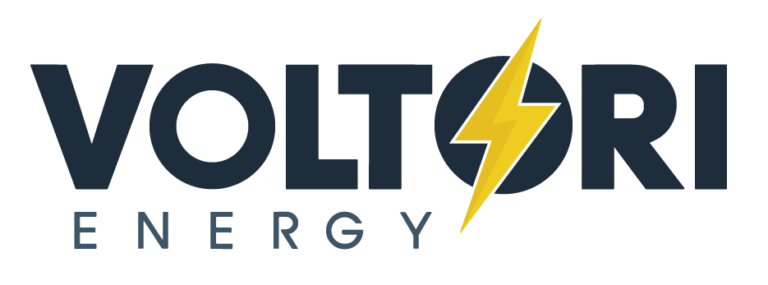Finding reliable transformer suppliers for Canadian projects is a nightmare. I've spent years dealing with delays, compliance issues, and quality problems that cost our renewable energy projects time and money.
Reliable transformer suppliers shipping to Canada include ABB, Siemens, Schneider Electric, Hammond Power Solutions, and CG Power Systems. The best choice depends on your specific voltage requirements, project timeline, budget constraints, and whether you need dry-type or liquid-filled transformers.

I've navigated the complex landscape of transformer procurement for Canadian renewable energy projects for years now. The challenges are significant but understanding the market can help you avoid costly mistakes. Let me share what I've learned about finding dependable transformer suppliers who can meet Canadian requirements.
Which Company Is Best For Transformers In Canada?
The question keeps me up at night - choosing the wrong transformer supplier has derailed project timelines and blown budgets for many of our clients in the renewable sector.
The "best" transformer supplier for Canadian projects depends on your specific needs. ABB and Siemens offer premium quality with excellent reliability but higher costs, while Hammond Power Solutions provides Canadian-made options with better lead times and local support.

I've worked with dozens of transformer suppliers over my years in the renewable energy sector. What I've discovered is that the definition of "best" varies dramatically based on your project requirements. For utility-scale solar farms, ABB's transformers have consistently delivered excellent performance in harsh Canadian climates, even during those brutal -40°C prairie winters. Their technical support is unmatched, though their premium pricing reflects this.
Siemens offers similar quality, particularly for wind farm applications, with excellent technical documentation that makes grid integration smoother. On the other hand, Hammond Power Solutions has become our go-to for mid-sized projects because their Canadian manufacturing facilities understand our standards inherently - no explaining CSA requirements or re-engineering for our voltage systems.
What truly determines the "best" supplier goes beyond specifications. In my experience, response time to technical queries, willingness to customize for Canadian climate considerations, and ability to provide accurate lead time estimates are equally important factors. The best partners I've found are those who understand renewable energy applications and can support the entire lifecycle from specification to commissioning.
| Company | Strengths | Weaknesses | Best For |
|---|---|---|---|
| ABB | Premium quality, excellent support | Higher cost, longer lead times | Utility-scale projects, harsh environments |
| Siemens | Technical innovation, reliability | Price premium, less flexible | Wind farms, grid integration |
| Hammond | Canadian-made, understands standards | More limited product range | Solar farms, medium voltage applications |
| Schneider | Global support network, wide range | Inconsistent lead time estimates | Commercial applications, standardized needs |
Who Is The Largest Manufacturer Of Transformers?
When I started sourcing transformers for Canadian renewable projects, I assumed bigger manufacturers would provide better service and reliability - a misconception that cost us dearly on early projects.
ABB, Siemens and Hitachi Energy are the largest global transformer manufacturers with combined market share over 35%. However, size doesn't always translate to better service for Canadian renewable energy projects, where specialized knowledge of local standards is crucial.

The transformer manufacturing landscape is dominated by these multinational giants, but my experience has taught me that bigger isn't always better for specialized Canadian renewable energy applications. These large manufacturers certainly offer advantages - their extensive R&D capabilities mean cutting-edge technology, and their global manufacturing footprint provides some supply chain resilience.
However, I've encountered frustrating challenges when working with these behemoths. Their standardized global processes often struggle to accommodate Canadian-specific requirements like CSA certification or our unique grid connection standards. Decision-making can be painfully slow, with approvals needed from overseas headquarters for even minor customizations that are essential for our climate conditions.
Some of our most successful projects have actually leveraged mid-sized manufacturers like Hammond Power Solutions or Rex Power Magnetics that understand Canadian requirements intrinsically. Their engineering teams grasp our renewable energy specifications without the lengthy education process often needed with global suppliers.
The large manufacturers also tend to prioritize their highest-volume markets, which means Canadian orders - particularly for specialized renewable applications - can get pushed back during supply shortages. I've had custom solar farm transformers delayed by months because standard industrial units took priority in production schedules.
Regional Manufacturing Capabilities
| Manufacturer | Global Market Share | Canadian Manufacturing | Canadian Office Support |
|---|---|---|---|
| ABB | ~13% | Limited | Yes |
| Siemens | ~11% | No | Yes |
| Hitachi Energy | ~10% | No | Yes |
| Hammond Power | ~3% | Yes | Yes |
| CG Power | ~2% | Yes | Yes |
Is There Still A Transformer Shortage?
The persistent transformer shortage has been the bane of my existence, forcing me to place orders for renewable energy projects 12+ months in advance with no guarantee they'll arrive on time.
Yes, the transformer shortage continues in 2023, though it's gradually improving. Lead times have decreased from 52+ weeks to approximately 30-40 weeks for standard units, but custom transformers for renewable energy applications still face significant delays due to material shortages and testing backlogs.
 impact](https://voltoritransformer.com/wp-content/uploads/2025/09/image-4-current-transformer-supply-chain-challe.png)
The transformer shortage situation has evolved significantly since the peak of supply chain disruptions in 2021-2022. I'm seeing notable improvements in availability for standard distribution transformers, but the specialized units required for renewable energy applications remain challenging to secure on reasonable timelines.
Several factors contribute to the ongoing constraints. The electrical steel shortage continues to be problematic - manufacturers simply cannot get enough of the specialized grain-oriented electrical steel needed for efficient transformer cores. I've spoken with procurement specialists at several major manufacturers who indicate that while general steel supply has improved, the specialty grades required for high-efficiency transformers remain allocated.
Copper shortages have eased somewhat, but skilled labor shortages at manufacturing facilities continue to limit production capacity. One supplier candidly told me they have materials sitting idle because they lack enough trained technicians to complete assembly and testing.
For Canadian renewable energy projects, the situation is further complicated by our specific requirements. Transformers that must meet CSA standards and operate reliably in extreme temperature ranges require additional design considerations, specialized materials, and more rigorous testing - all of which extend lead times beyond standard products.
I've implemented several strategies to mitigate these challenges. Early procurement has become essential - we now include transformers in the initial project planning phase rather than waiting until site preparation begins. We've also developed stronger relationships with suppliers who have demonstrated reliability in meeting Canadian requirements, sometimes paying premiums to secure priority production slots.
Current Lead Time Estimates
| Transformer Type | 2021 Lead Time | Current Lead Time | Impact on Projects |
|---|---|---|---|
| Standard Distribution | 52+ weeks | 30-40 weeks | Moderate project delays |
| Pad-mounted Solar | 65+ weeks | 45-52 weeks | Significant schedule impact |
| Wind Farm Step-up | 70+ weeks | 50-60 weeks | Critical path delays |
| HVDC Converter | 104+ weeks | 80-90 weeks | Project viability concerns |
Are Any Transformers Made In The USA?
I've explored US manufacturing options as potential alternatives when Canadian supplies run short, but discovered that cross-border procurement brings its own set of challenges.
Yes, several companies manufacture transformers in the USA, including Cooper Power (Eaton), Howard Industries, Virginia Transformer, and Delta Star. However, these aren't always ideal for Canadian projects due to differing standards requirements, cross-border shipping complexities, and duty considerations.

The proximity of US manufacturing facilities initially seemed like an ideal solution to our supply chain challenges. Having suppliers just across the border appeared to offer shorter lead times and reduced shipping costs compared to overseas options. However, my experience with US suppliers has been mixed at best for our Canadian renewable energy projects.
While the US does have substantial transformer manufacturing capacity, I've encountered numerous challenges when sourcing from American suppliers. The first major hurdle is regulatory - transformers designed primarily for the US market are built to ANSI/IEEE standards, which differ from the CSA standards required in Canada. This necessitates special orders with modified designs, which often negates any lead time advantages.
Customs clearance adds another layer of complexity. Transformers are classified as electrical equipment subject to various import regulations, and the paperwork requirements are substantial. I've had shipments held at the border for weeks awaiting proper documentation or inspection. The duties and taxes also significantly impact the total landed cost, sometimes making US-manufactured units more expensive than expected despite the geographical proximity.
Transportation presents its own challenges. Large power transformers require specialized handling and sometimes permits for oversized loads. Crossing the border adds complexity to these logistics arrangements, with different regulations on either side regarding transportation of oversized equipment.
That said, several US manufacturers have developed strong expertise in serving the Canadian market. Virginia Transformer has been particularly responsive in adapting their designs to meet CSA requirements, and Delta Star has demonstrated excellent understanding of our renewable energy applications. For certain specialized applications, the expertise available from these US suppliers makes the additional logistical challenges worthwhile.
US Manufacturers Serving Canada
| Manufacturer | Location | Canadian Experience | Canadian Standards Familiarity |
|---|---|---|---|
| Cooper Power (Eaton) | Multiple US sites | Extensive | Good - requires modification |
| Howard Industries | Mississippi | Moderate | Limited - significant adaptation needed |
| Virginia Transformer | Virginia | Strong | Very good - dedicated Canadian designs |
| Delta Star | Virginia | Growing | Improving - working with Canadian consultants |
Conclusion
Finding reliable transformer suppliers for Canadian renewable energy projects requires balancing quality, compliance with standards, lead times, and support capabilities. The landscape continues to evolve as supply chains recover from recent disruptions.
Voltori Energy specializes in custom-engineered power transformers for Canadian renewable energy applications, delivering reliable solutions when standard suppliers fall short.




